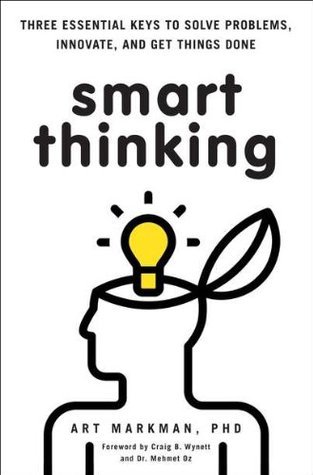
A Whole New Mind: Why Right-Brainers Will Rule the Future
Book Description
The landscape of success is shifting, and the future belongs to the imaginative and intuitive. In "A Whole New Mind," Daniel H. Pink unveils a bold vision where right-brainers—those who thrive on creativity, empathy, and holistic thinking—take center stage in a world increasingly dominated by automation and routine. With compelling insights and eye-opening examples, Pink challenges the conventional wisdom of left-brain dominance and reveals the crucial skills needed to navigate tomorrow’s complex challenges. As the old paradigms crumble, are you ready to embrace the power of a new perspective?
Quick Book Summary
In "A Whole New Mind," Daniel H. Pink explores how the needs of the modern economy are shifting from left-brain dominance—characterized by logic, analysis, and routine—to right-brain abilities such as creativity, empathy, and holistic thinking. Pink demonstrates that automation and outsourcing are eroding the value of traditional, analytical skills while elevating the importance of inventiveness, emotional intelligence, and big-picture thinking. He identifies key aptitudes—like design, storytelling, and empathy—as essential for thriving in an age where information is abundant and easily processed by machines. Grounded in research and enlivened by real-world examples, Pink provides readers with practical exercises for developing these aptitudes, urging them to embrace a more balanced, creative mindset to succeed and find fulfillment in work and life.
Summary of Key Ideas
Table of Contents
The Shift from Left-Brain to Right-Brain Thinking
Pink begins by describing a historical transition: the Information Age, ruled by logical, linear, left-brain thinking, is giving way to what he calls the Conceptual Age, where right-brain characteristics like inventiveness and empathy are increasingly valuable. Routine tasks—those that can be reduced to rules or formulas—are swiftly being automated or outsourced, forcing individuals and organizations to differentiate themselves through skills that machines and remote workers can’t easily replicate. This marks a profound shift in what it means to be successful and fulfilled in work and life.
Six Essential Senses for the New Era
To meet this new era, Pink introduces the concept of the "six senses"—aptitudes that transcend traditional cognitive skills. These senses are Design, Story, Symphony, Empathy, Play, and Meaning. Each is explored in-depth, with practical tips on how readers can cultivate them. For instance, Design involves creating something beautiful and functional, while Symphony focuses on seeing the big picture and making connections between disparate ideas. Story and Empathy emphasize the power of narrative and the ability to understand others, while Play and Meaning encourage humor, joy, and a search for purpose.
Automation, Outsourcing, and Their Implications
The rise of automation and the outsourcing of routine work are portrayed as double-edged swords. While they eliminate the need for many left-brain skills, they also place a premium on uniquely human abilities. Pink discusses how these trends affect employability, job satisfaction, and economic competitiveness. He argues that developing right-brain skills isn’t just for artists; it is essential for anyone wanting to thrive in a world where analytical skills are no longer enough. He uses compelling examples from business, medicine, and education to illustrate the impact of these changes.
Developing Creative and Emotional Skills
Pink provides actionable advice and exercises for cultivating the six essential aptitudes. He encourages readers to engage in activities such as learning to draw, practicing empathy through volunteer work, or experimenting with storytelling. Beyond exercises, he argues for a holistic approach to personal and professional development that values meaning, purpose, and well-being as much as logic and efficiency. Developing these aptitudes can not only increase workplace relevance but also lead to a more engaged and meaningful life.
Balancing Analysis with Meaning
Ultimately, Pink’s thesis is that a balanced mind—leveraging both right- and left-brain strengths—is critical for navigating the future. By embracing creative, empathetic, and big-picture thinking, individuals and organizations can stand out in an increasingly crowded, competitive landscape. Pink’s call to action is clear: cultivate the capabilities that make us uniquely human and be proactive in shaping your skills for a rapidly evolving world.
Download This Summary
Get a free PDF of this summary instantly — no email required.





